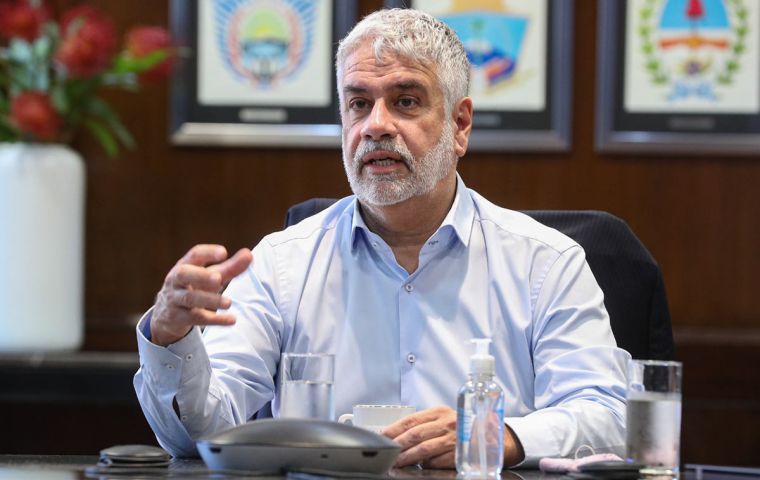MercoPress. South Atlantic News Agency
Argentina's November inflation “only” 2.5%
 With the “meat effect” removed, ”you will have the right measurement of whether the basket was an anti-inflationary anchor or not,” Feletti explained
With the “meat effect” removed, ”you will have the right measurement of whether the basket was an anti-inflationary anchor or not,” Feletti explained Argentina's monthly inflation in November reached 2.5% for an accumulated 45.4% so far this year and 51.2% in the last twelve months, it was announced Tuesday in Buenos Aires by the National Institute of Statistics and Censuses (Indec).
The Retail Price Index increased 2.5% during November, below the 3.5% registered in both September and October, it was reported.
Food and non-alcoholic beverages increased 2.1% monthly versus 3.4% in October, with a slowdown in almost all items as a result of restrictive measures -chiefly the “Precios Cuidados” Program- from the Domestic Trade Secretariat headed by Roberto Feletti.
Seasonal products increased only 0.5% monthly, compared to 8.1% in October, with a sharp drop in the prices of vegetables.
The rise in prices was below market expectations, although it remained at “high and persistent” levels, as defined by the IMF last Friday. According to the latest Market Expectations Survey (REM) from the Central Bank (BCRA), private analysts expected a variation of 3.1% for last month, while most specialists foresee inflation to be between 51% and 52% by the end of this year. The consumer price index (CPI) is already above Economy Minister Martín Guzmán's projections for 2021 (45.1%). Core inflation, which does not include seasonal or regulated prices, rose 3.3% (one-tenth higher than last month).
“A success in today's inflation number would be for it not to exceed 3%, or to be around 3%. This index will be strongly influenced by the rise in meat. We are talking [about an] increase between 11% and 12%, according to our survey,“ Feletti said Tuesday. With the ”meat effect“ removed, ”you will have the right measurement of whether the basket was an anti-inflationary anchor or not,” he went on.
The “meatless” price index was first proposed by Economy Minister José Alfredo Martínez de Hoz under the de facto presidency of Jorge Rafael Videla (1976-1981).
After a record rise in the price of meat in November, the Government has announced five cuts will be traded at reduced prices at Christmas and New Year's celebrations.
The Economy Ministry highlighted that “inflation in November slowed down to 2.5%, the lowest record of the year together with August.” The main increases of the month were Restaurants and Hotels (5%); Clothing and Footwear (4.1%) and Home Equipment and Maintenance (2.7%), according to Indec.




Top Comments
Disclaimer & comment rulesCommenting for this story is now closed.
If you have a Facebook account, become a fan and comment on our Facebook Page!